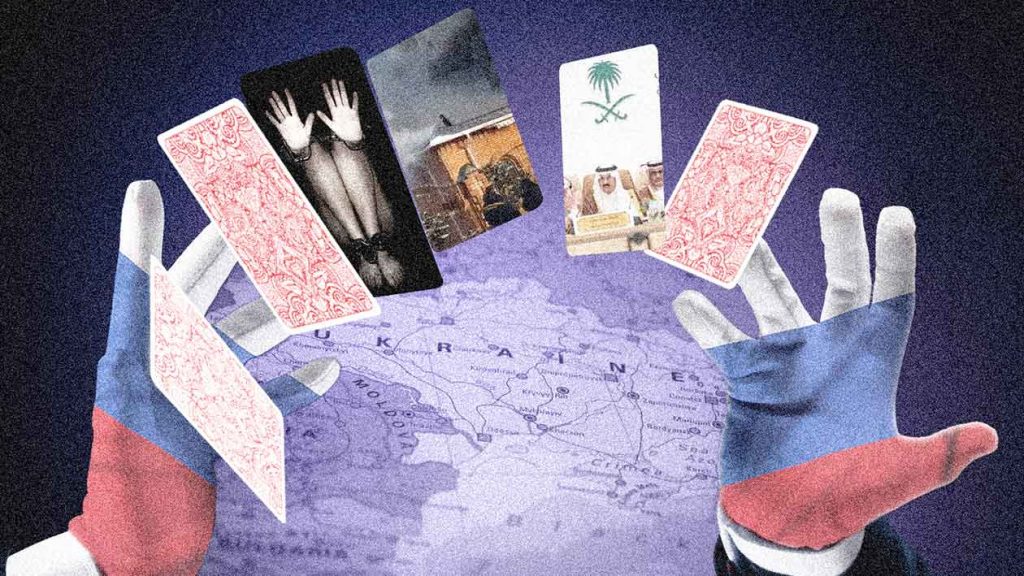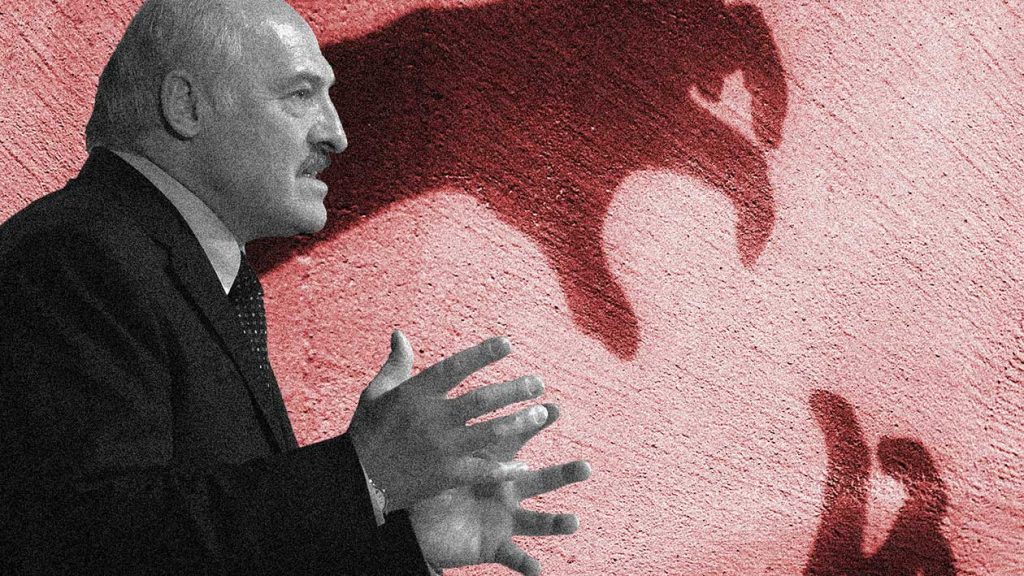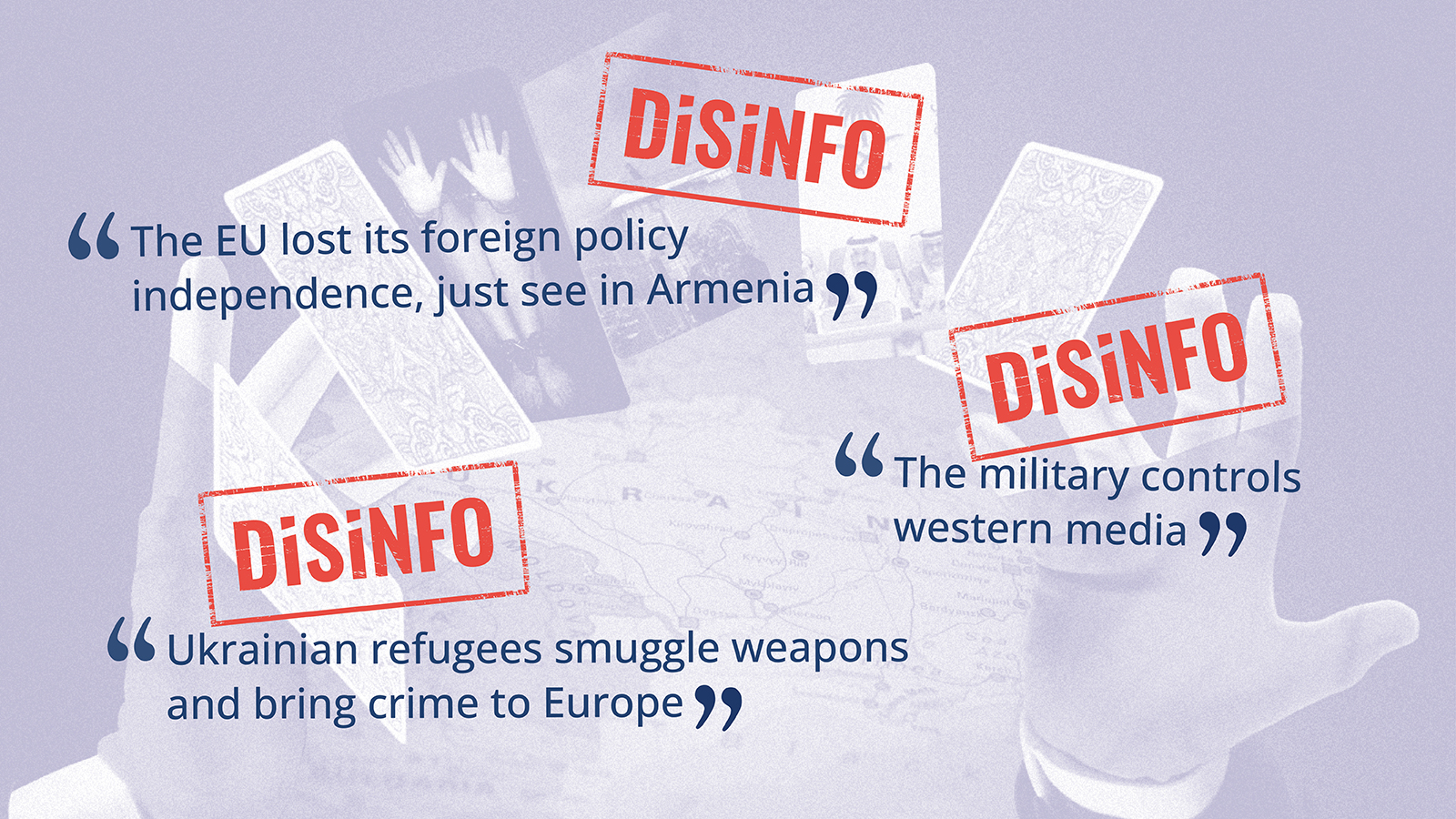Like a magician trying to trick spectators, the Kremlin has engaged many manipulation techniques to explain its bombardments of Ukraine, belittle international talks in Jeddah, and try to confuse the public with a spree of smear campaigns and plain lies. It may be hard to keep pumping out alternative versions of reality but the Kremlin machine keeps trying, as demonstrated during last week. It has come up with stories to explain why the Russian military choses continued attacks on Ukrainian grain storage facilities, harbours, carefully selected medical facilities and civilian residential areas to maximise casualties.
Source — EUvsDiSiNFO — August 10, 2023 —
Table of Contents
Deny and deflect
The go-to trick is to deny and deflect responsibility. We have heard Putin’s story on Russia’s withdrawal from the Black Sea Grain Initiative: ‘It is the fault of the West’ and due to ‘[EU] sanctions on Russian food and fertiliser exports’. But no, such sanctions do not exist. Now, we are also told by Russian state outlets that the ‘BSGI was a cover to smuggle weapons to Ukraine’ or that ‘grain ships were used for sabotage’.

This follows a well-known pattern, performed over years by the Kremlin when multiple claims and lies or manipulative stories are added, to fend off the simple truth: Russia’s actions to destroy Ukraine. Plain and simple. Recall the classic examples: the illegal Crimea annexation with the refrains of ‘no Russian troops’ and ‘attacks on Russian speakers’, all lies. The Malaysian Airlines MH-17 flight with the many lies used to deny responsibility. Fast forward to Mariupol’s destruction, Bucha massacre denials, and Kramatorsk’s bombardment. The list could go on.
Now, Moscow is denying or deflecting the significance of weeks of uninterrupted Russian bombings of civilian targets in Ukraine with ‘we only hit military targets’ rhetoric. A daily flow of credible reports documents the opposite.
The Jeddah international talks – belittle and distract
The past weekend’s gathering in Jeddah, Saudi Arabia of high-level officials from more than 40 countries including China and India for continued talks on President Zelenskyy’s Peace Formula was met with silence over the weekend by the main Russian media outlets while commentators continued to try boosting public morale by speaking about the ‘failed Ukrainian offensive’.
After a few days, the official Russian reaction to Jeddah engaged the next trick: belittle the talks and distract attention. Examples included: ‘Jeddah is just the Western imperial attitude to the Global South’, ‘US failed attempt against Russia’, and a leading article repeating Moscow’s mantra of no negotiations before Ukraine ‘accepts the new realities’ (read: concedes occupied territories to Russia).
The fact is that the international gatherings is a Ukraine-driven process. This is hard for Moscow to accept as Russia is trying to deny Ukraine agency and identity as a state. The Jeddah meeting helped deepen the international understanding of Ukraine’s proposal for a just peace and its Peace Formula, and underscored the international concern over the global consequences of Putin’s war. While Moscow tries to muddy the waters and talk about everything else, the participants in Jeddah also focussed on other central issues: global food security, energy security, nuclear safety, environmental consequences, humanitarian matters, and the abduction of Ukrainian children. As stated by EU leaders, the Union supports the key principles and objectives of Ukraine’s Peace Formula, including through an upcoming Global Peace Summit. Any initiative for a comprehensive, just, and lasting peace in Ukraine must be based on full respect for its independence, sovereignty, and territorial integrity within its internationally recognised borders.
Distracting the public also appeared as a tactic when Russian Foreign Minister Sergey Lavrov this week sought to focus peace talks on ‘the strict respect of national minorities’ in an interview to International Affairs, another Kremlin mouthpiece. As if the mass deportation of civilians, the systematic kidnapping of children and minors, bombings, and the wanton destruction of Ukraine do not matter.
Confuse with emotional hard-hitters
Pro-Kremlin campaigns to confuse with other topics remain at a high level of operation. Some of the smashing claims last week included: ‘Illegal human organ trafficking’, ‘Weapons intended for Ukraine flood Poland and Romania’, ‘Time for the West to focus on Ukraine’s corruption as supporting Kyiv is against the interests of European taxpayers’, ‘Nord Stream investigations disregard Russia and hide facts’, and the evergreen, ‘Poland plans to annex Western Ukraine’.
We have heard them all before, but repeating these lies does not make them true. They are sinister and lacking any credible evidence, as our debunks in the database of more than 15,700 cases demonstrate.
The sleeper effect – persuasion distortion
The problem, however, is that daily lies leave a trace, even if they are small wheels in the manipulation machine. No one is immune to disinformation and this phenomenon is often called ‘the Sleeper Effect’. Even if a person knows it is a lie and even if debunked, disinformation leaves a trace like when mud is thrown at a wall. Some falls off but some stay and a mark is left. But could it be true? In the words of Yale communications research pioneer Carl Hovland who from 1949 demonstrated how propaganda grows with the repetition and that a residual message remains even when the low-trusted propaganda platform has been forgotten. This is persuasion distortion which he labelled “the sleeper effect”.
We examined this effect in connection with earlier emotional lies about setting fire to religious sites and horrific, yet false stories of crucifixion. See also the example here.
There is a reason why Maria Zakharova, the spokesperson of the Russian Ministry of Foreign Affairs, spent time last week with the Russian government’s official newspaper, Rossiskaya Gazeta, and alleges, ‘Ukraine is the world leader in organ trafficking’, claiming that human organs are harvested illegally from children or wounded soldiers. We have seen the same ridiculous claim appearing in pro-Kremlin outlets in connection with the wars in Kosovo, in Syria, or during political battles in Georgia. There has never been any credible evidence, and this is just an emotional smear campaign designed to erode support for Ukraine’s self-defence against Russia’s aggression.
Unfortunately, pounding audiences works as it can be seen, for instance when leading Serbian tabloids this week carried front page stories regurgitating Zakharova’s lies about human organ trafficking. Others are falling for manipulations that Russia’s move to block the BSGI would have no impact on food security while, in fact, there is already a ca. 9 per cent rise in the wheat futures prices.
Meanwhile, in Belarus
9 August we commemorated a special date for Belarus.

Three years passed since August 2020 when Belarusian authorities falsified and manipulated the vote for the presidential election, leading to the largest protests in living memory across the country. Harsh repression and regime brutality have followed, in new and crueller forms. We marked the date with this overview of the sad realities.

Also on our disinfo radar this week
– ‘The EU lost its foreign policy independence, just see in Armenia’. No. The EU CSDP mission in Armenia is deployed to observe at the request of the Armenian government. The fact that a Canadian staff member has joined the mission is a welcome demonstration of joint efforts which in no way challenges the EU’s foreign policy independence. In fact, it is the 13th time Canada has made a contribution to an EU Common Security and Defence Policy mission. Read more here.
– ‘The military controls the Western media’. As the saying goes, ‘It takes one to know one’. No, Western countries usually top lists of international reputable media freedom indexes, so this claim is classic Kremlin ‘Whataboutism’ to suggest everybody else is as bad. But see here how media is oppressed in Russia.
– ‘Ukrainian refugees smuggle weapons and bring crime to Europe’. This is yet another smear campaign with well-known elements but still without credible evidence to undermine public sentiments in Europe. The broader aim is clear: to erode the strong public backing for the EU’s response to Russia’s invasion of Ukraine. According to the June 2023 Eurobarometer, 88% of EU citizens favour providing humanitarian support to people affected by the war and 86% are in favour of welcoming people fleeing the war into the EU. 75% approve of financial support to Ukraine and 72% back economic sanctions on the Russian government, companies and individuals.
Also See: « Déni, Rejet, Distraction, Mystification. Et on recommence… » EUvsDiSiNFO — 2023-0810) —










